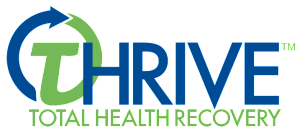The Physics of Trauma and Alcohol Abuse Treatment

For example, if a person survives a terrible car accident, she or he might feel nervous about riding in a car again. In comparing with Newton’s Third Law, the accident was the action causing psychological trauma, which is the brain’s reaction. The body then responds to that trauma with its own physical symptom reactions, as well.
Mental and physical trauma fall under Newton’s laws too.
Newton’s law dictates the reaction must be equal to the action, we know that the severity of the trauma-inducing event will directly impact the severity of the mental and physical trauma experienced. Every person reacts differently to various traumatic events. However, there is always a reaction of some kind, whether it displays externally or not. In other words, no matter how good a person is at trying to hide it or how “blind” they are to it, somewhere inside they’re struggling and those issues will eventually find outlets.
For many people to cope with internal feelings of stress, anxiety, or other trauma-related symptoms, they may turn to behaviors that help distract, calm, or numb them. One of the most typical behaviors such people engage in is the consumption of alcohol. However, though it is fast and easy, alcohol use is an ineffective and dangerous way to self-medicate. For starters, it’s addictive and can lead to Alcohol Abuse Disorder, with some users being more susceptible than others.
There’s no doubt about it; drinking in America is extremely popular.
The National Survey on Drug Use and Health discovered that over 86% of people 18 or older have tried alcohol, with more than 55% saying they have drank in the last 30 days (note, that statistic doesn’t include minors). The same study found that 14.4 million adults and an estimated half a million minors under 18 had AUD. While consuming the occasional alcoholic beverage may be safe for most persons, studies show that it clearly poses a grave risk to a large percentage, leading to substance abuse.
Who makes up that at-risk percentage? As you might expect, that group contains a high number of persons suffering from symptoms of trauma. Indeed, many drinkers who develop a problem already have Post-Traumatic Stress Disorder or a related issue. When a substance abuse disorder (like AUD) is combined with a mental health disorder (like PTSD), this is known as a Co-Occurring Disorder.
Some persons experiencing these issues may be undiagnosed, or not realize how past unresolved traumas are still contributing to their ongoing problems. Meanwhile, people with co-occurring disorders cannot see the forest for the trees, meaning they don’t realize how all these matters feed into each other. The big picture is hard to see when one is experiencing day-to-day problems such as depression, anxiety, intoxication, hangovers, or dealing with the consequences of actions while under the influence.
 Either problem — AUD or a trauma-related disorder — is extraordinarily difficult to solve on one’s own.
Either problem — AUD or a trauma-related disorder — is extraordinarily difficult to solve on one’s own.
Combined, the odds of successful self-treatment shrink to virtually zero. This is where we can compare Sir Newton’s First Law. To paraphrase, for purposes of this comparison, an object in motion will not stop by itself, it needs help to stop; otherwise it will keep going along the same path. Without external counseling and treatment, the problems resulting from trauma can continue indefinitely.
Gulf Breeze Recovery strives to offer the best and most comprehensive alcohol and substance abuse treatment options in the country, with plans of treatment tailored to fit individual needs. Our professional and medical staff are available to meet all your needs for high-quality substance abuse treatment.
If you or someone you care about, has an ongoing history of alcohol or substance use and/or relapse, contact Gulf Breeze Recovery or call: 833.551.2356 to speak to an addiction expert to learn more about their residential program, out-patient program, and intensive out-patient program, and which of these can best fit your individual needs. These programs have helped many people overcome their addiction and embrace their new happy, healthy, substance-free lifestyle.
We help people not just to survive, but to THRIVE!
The Physics of Trauma and Alcohol Abuse Treatment

For example, if a person survives a terrible car accident, she or he might feel nervous about riding in a car again. In comparing with Newton’s Third Law, the accident was the action causing psychological trauma, which is the brain’s reaction. The body then responds to that trauma with its own physical symptom reactions, as well.
Mental and physical trauma fall under Newton’s laws too.
Newton’s law dictates the reaction must be equal to the action, we know that the severity of the trauma-inducing event will directly impact the severity of the mental and physical trauma experienced. Every person reacts differently to various traumatic events. However, there is always a reaction of some kind, whether it displays externally or not. In other words, no matter how good a person is at trying to hide it or how “blind” they are to it, somewhere inside they’re struggling and those issues will eventually find outlets.
For many people to cope with internal feelings of stress, anxiety, or other trauma-related symptoms, they may turn to behaviors that help distract, calm, or numb them. One of the most typical behaviors such people engage in is the consumption of alcohol. However, though it is fast and easy, alcohol use is an ineffective and dangerous way to self-medicate. For starters, it’s addictive and can lead to Alcohol Abuse Disorder, with some users being more susceptible than others.
There’s no doubt about it; drinking in America is extremely popular.
The National Survey on Drug Use and Health discovered that over 86% of people 18 or older have tried alcohol, with more than 55% saying they have drank in the last 30 days (note, that statistic doesn’t include minors). The same study found that 14.4 million adults and an estimated half a million minors under 18 had AUD. While consuming the occasional alcoholic beverage may be safe for most persons, studies show that it clearly poses a grave risk to a large percentage, leading to substance abuse.
Who makes up that at-risk percentage? As you might expect, that group contains a high number of persons suffering from symptoms of trauma. Indeed, many drinkers who develop a problem already have Post-Traumatic Stress Disorder or a related issue. When a substance abuse disorder (like AUD) is combined with a mental health disorder (like PTSD), this is known as a Co-Occurring Disorder.
Some persons experiencing these issues may be undiagnosed, or not realize how past unresolved traumas are still contributing to their ongoing problems. Meanwhile, people with co-occurring disorders cannot see the forest for the trees, meaning they don’t realize how all these matters feed into each other. The big picture is hard to see when one is experiencing day-to-day problems such as depression, anxiety, intoxication, hangovers, or dealing with the consequences of actions while under the influence.
 Either problem — AUD or a trauma-related disorder — is extraordinarily difficult to solve on one’s own.
Either problem — AUD or a trauma-related disorder — is extraordinarily difficult to solve on one’s own.
Combined, the odds of successful self-treatment shrink to virtually zero. This is where we can compare Sir Newton’s First Law. To paraphrase, for purposes of this comparison, an object in motion will not stop by itself, it needs help to stop; otherwise it will keep going along the same path. Without external counseling and treatment, the problems resulting from trauma can continue indefinitely.
Gulf Breeze Recovery strives to offer the best and most comprehensive alcohol and substance abuse treatment options in the country, with plans of treatment tailored to fit individual needs. Our professional and medical staff are available to meet all your needs for high-quality substance abuse treatment.
If you or someone you care about, has an ongoing history of alcohol or substance use and/or relapse, contact Gulf Breeze Recovery or call: 833.551.2356 to speak to an addiction expert to learn more about their residential program, out-patient program, and intensive out-patient program, and which of these can best fit your individual needs. These programs have helped many people overcome their addiction and embrace their new happy, healthy, substance-free lifestyle.
We help people not just to survive, but to THRIVE!
About Gulf Breeze Recovery:
Gulf Breeze Recovery, unlike other treatment centers in Florida, is a non 12 step holistic drug and alcohol rehab that is changing the future of addiction treatment with their THRIVE® (Total Health Recovery) program focused on overcoming chronic relapse.
Gulf Breeze Recovery’s THRIVE® program is a non 12-step approach designed for those who are looking for a drug and alcohol treatment program to produce a different and positive result.
This non-12 step program allows you to drive beyond your addictions and promotes a new outlook on life.
We are licensed by the Florida Department of Children and Families, and our last audit scored 99.7! Also, we are gold certified by the Joint Commission.
Want to read more about Gulf Breeze Recovery’s non 12 step, holistic drug and alcohol rehab? Check out some of our latest posts:
Researchers Identify Role of Key Brain Signaling Protein in Alcohol Use Disorder
January 29, 2021
College Students Who Returned Home Due to Pandemic Drinking Less
January 29, 2021
Overdose Deaths Soar in the Midst of a Pandemic
January 27, 2021
Alcoholism Today in Seniors and Younger Generations
January 20, 2021
End Chronic Relapse and Start a New Life!
At Gulf Breeze Recovery we don’t want you to have just a great recovery, we want you to have a great life!



 Either problem — AUD or a trauma-related disorder — is extraordinarily difficult to solve on one’s own.
Either problem — AUD or a trauma-related disorder — is extraordinarily difficult to solve on one’s own.
 Either problem — AUD or a trauma-related disorder — is extraordinarily difficult to solve on one’s own.
Either problem — AUD or a trauma-related disorder — is extraordinarily difficult to solve on one’s own.






